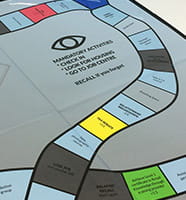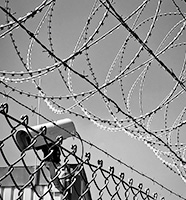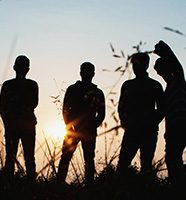Cultural criminology
Research within cultural criminology
The emerging and vibrant field of cultural criminology has made significant advances across criminology as a field of study, and these are represented in the works of Centre members who are actively researching the complex interfaces between crime and deviance and the multiple cultural forms that shape and redirect them.
About us
This is a newly emerging research group with a mission to establish a stream of cultural criminological work from within the Centre.
Staff expertise here can be found in relation to (auto)ethnographic methods, and the cultural representation of criminological subjects.
Strands
Autoethnography
Work is currently underway around establishing an ‘autoethnographic criminology’ as a distinctive methodological position associated with cultural criminology. Here Steve Wakeman has published a number of articles/chapters and is currently in the final stages of writing up a book-length account of these ideas which will be published early in 2020.
Please see the following publications:
- Wakeman, S. (forthcoming) Autoethnographic Criminology. Abingdon: Routledge.
- Wakeman, S. (2019). ‘Feeling criminology’: Learning from emotions in criminological research. In M. Hviid Jacobsen & S. Walklate (eds), Emotions and Crime: Towards a Criminology of Emotions. Abingdon: Routledge (pp. 188-201).
- Wakeman, S. (2019). Autoethnography. In E. McLaughlin and J. Muncie (eds), The Sage Dictionary of Criminology (4th ed.) (pp. …). London: Sage.
- Wakeman, S. (2018). Doing criminological autoethnography: Learning from conversations with ourselves. In S. K. Rice and M. D. Maltz (eds), Doing Ethnography in Criminology: Discovery Through Fieldwork (pp. 325-326). Cham: Springer.
- Wakeman, S. (2017). Afterword: The case for criminological autoethnography. British Journal of Community Justice, 14(2): 75-78.
- Wakeman, S. (2016). Researching Heroin Users Using Autoethnography. SAGE Video, Research Methods Collection. London: Sage. doi.org/10.4135/9781473966727
- Wakeman, S. (2014). Fieldwork, biography and emotion: Doing criminological autoethnography. British Journal of Criminology, 54(5): 705-721.
- Wakeman, S. (2014). Heroin in ‘austerity Britain’: An (auto)ethnographic study of drug addiction. SAGE Cases in Methodology. London: Sage.
Popular Criminology
Staff within the centre are actively researching the criminological significance of various types of cultural representations of crime, deviance, and the agencies of social control. Steve Wakeman has published around TV shows like The Wire, Breaking Bad, and Game of Thrones.
Please see the following chapters/articles:
- Wakeman, S. (forthcoming). ‘He who passes the sentence should swing the sword’: Penal utopias in Game of Thrones. In J. Grubb & C. Posick (eds), Streaming Criminology: Theory and Justice Through the Lens of Popular TV Shows (pp. …). New York, NY: New York University Press.
- Wakeman, S. (2019). Popular Criminology. In E. McLaughlin and J. Muncie (eds), The Sage Dictionary of Criminology (4th ed.) (pp. …). London: Sage.
- Wakeman, S. (2017). The 'one who knocks' and the 'one who waits': Gendered violence in Breaking Bad Crime Media Culture, 14(2), 213-228.
- Wakeman, S. (2017). Crime dramas as social science fiction. The Oxford Research Encyclopaedia of Crime, Media and Culture. Doi: 10.1093/acrefore/9780190264079.013.28
- Wakeman, S. (2014). ‘No one wins. One side just loses more slowly’: The Wire and drug policy. Theoretical Criminology, 18(2): 224-240.
Steve Wakeman
Steve is a cultural criminologist and has been based in the centre since 2014. His work in this field falls into one of two areas:
- the representation of criminological significant subjects in various popular cultural forms
- the ways in which autoethnography can be used to enhance cultural criminology
Having written about TV shows such as The Wire, Breaking Bad, Game of Thrones and Boardwalk Empire, his attention is now turning to video games and comic books with a view to understanding how these forms of media too can help reshape and redirect criminological debates. Alongside this, Steve has been writing various articles and a book about autoethnography in criminology, and this is due to be published in early 2020.
Contact Steve Wakeman with questions around any of the Centre’s cultural criminological work.





